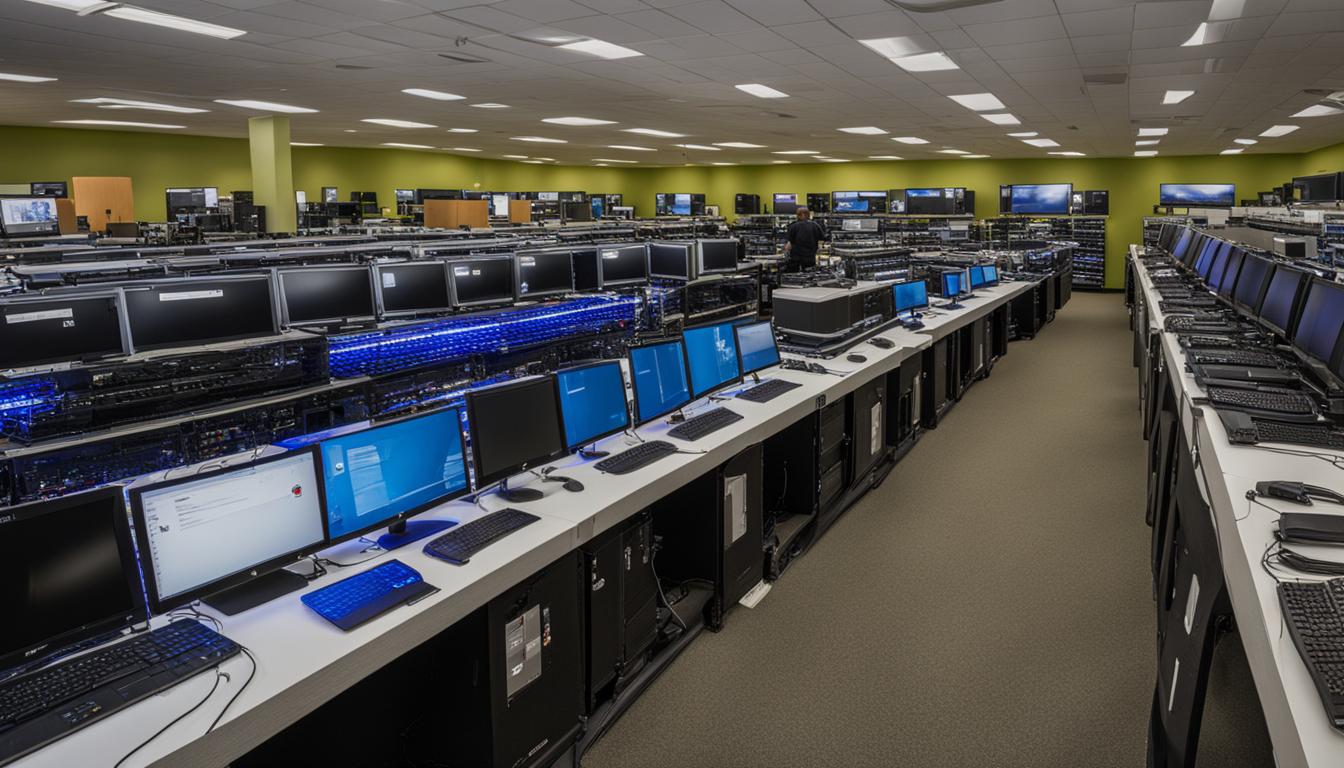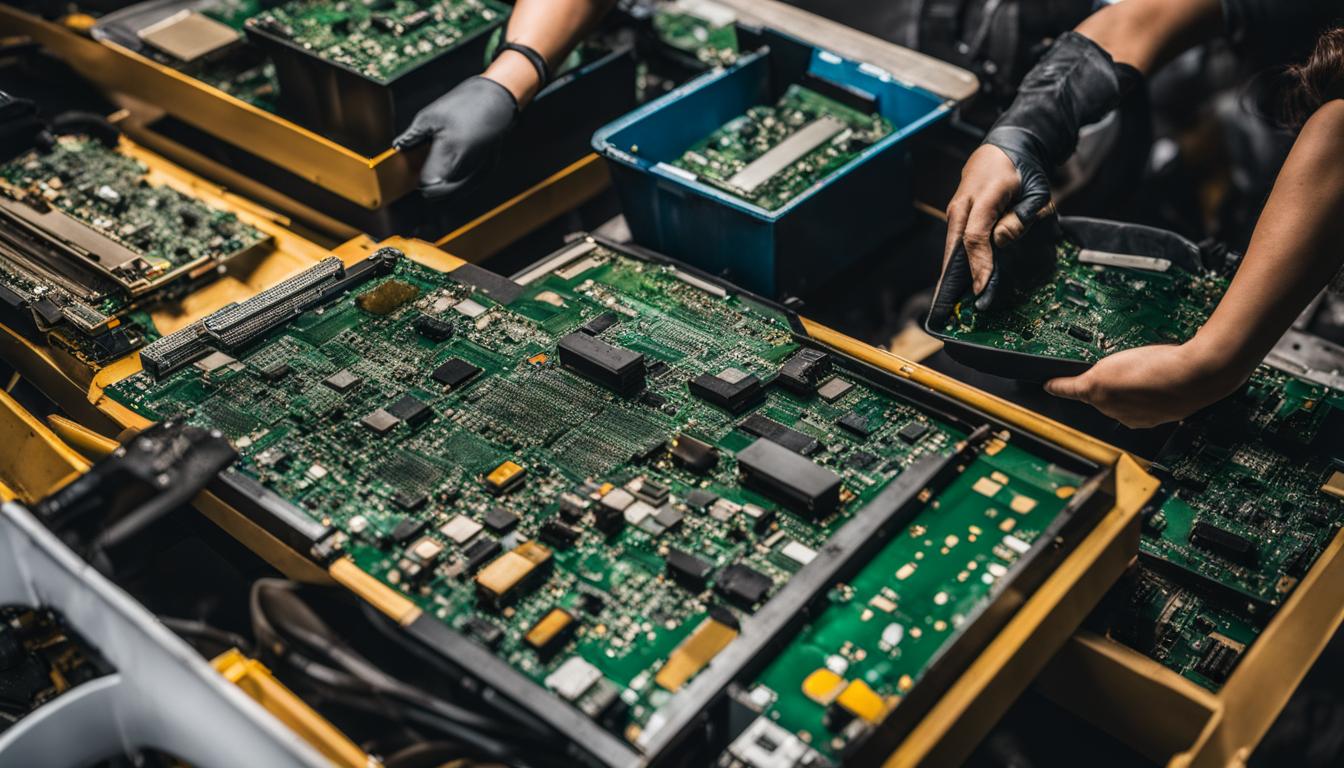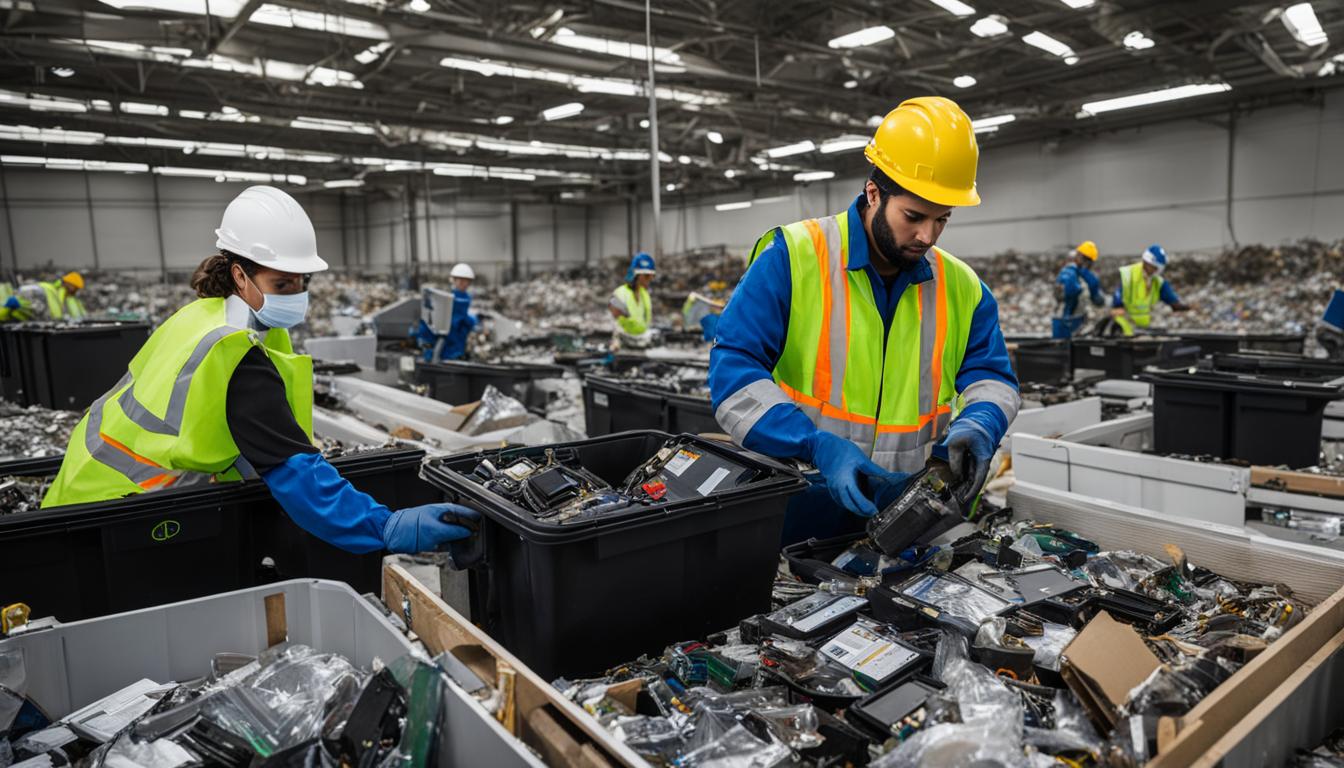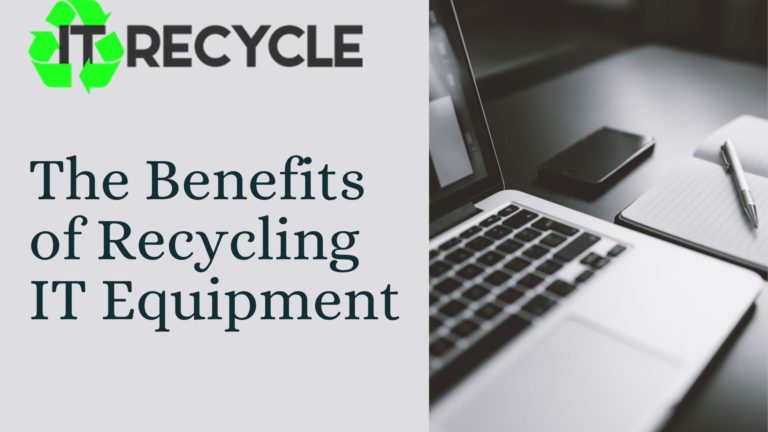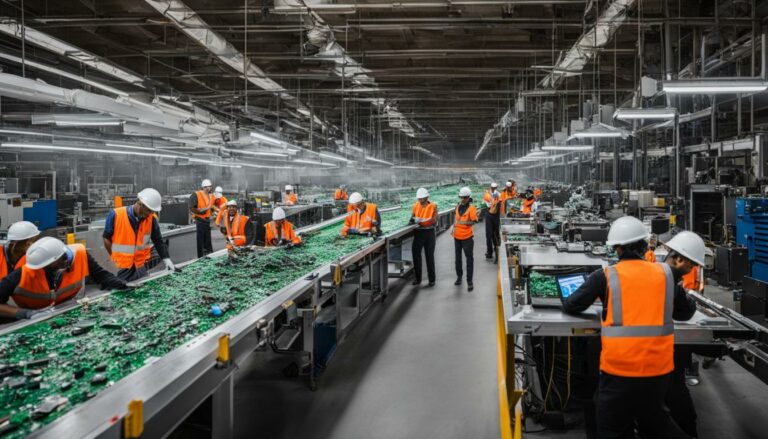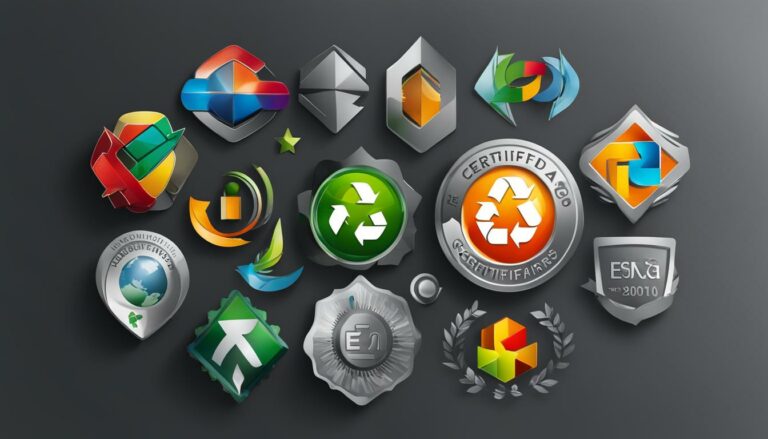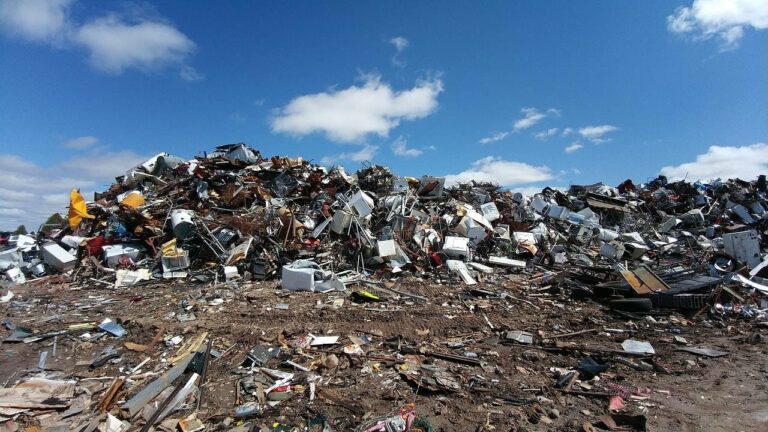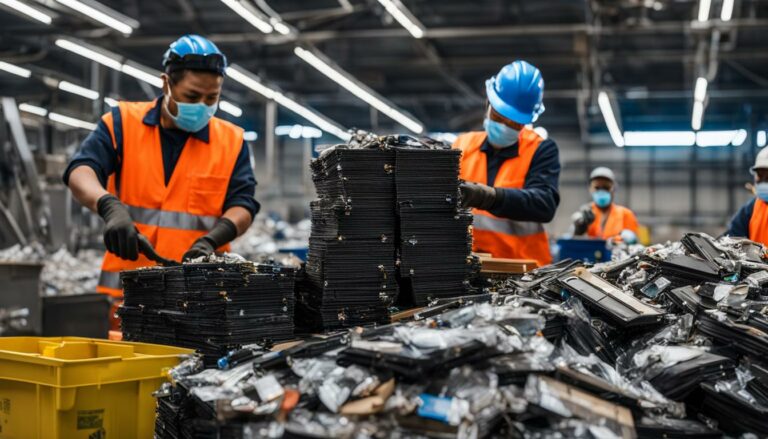Maximising Value: Reselling vs. Recycling Old IT Equipment
The demand for IT hardware is increasing as businesses rely more on technology. However, purchasing new equipment can be costly, making it difficult for many companies to keep up with the latest trends. Maximising the use of existing hardware and recycling old or unused equipment can help businesses save money. IT hardware reuse involves putting old equipment back into service, while recycling breaks down older hardware to create new technology. Refurbishing old equipment and participating in trade-in programmes are also cost-effective ways to upgrade hardware.
Key Takeaways
- IT equipment reselling and recycling can help businesses save money and stay up to date with technology.
- Refurbishing old equipment and participating in trade-in programmes are cost-effective ways to upgrade hardware.
- Reusing and recycling IT hardware can extend equipment life, reduce disposal costs, and improve productivity.
- Choosing a certified IT hardware recycler ensures data security and responsible disposal.
- By maximising the value of existing hardware, businesses can reduce waste and enhance their sustainability efforts.
Tips for Maximizing Your IT Hardware Budget Through Reuse and Recycling
When it comes to optimizing your IT hardware budget, there are several strategies you can employ to maximize value and minimize costs. Refurbishing old hardware is a cost-effective solution that allows you to extend the life of your IT equipment while saving money. Specialized companies can help you refurbish and upgrade your existing hardware, ensuring it meets your specific requirements.
Another option to consider is participating in trade-in programs offered by manufacturers. These programs allow businesses to upgrade their hardware without exceeding their budget. By trading in your old equipment, you can receive credit towards the purchase of new technology, making it an affordable option for staying up to date with the latest advancements.
Selling your old IT equipment can also help you maximize your budget. There is often a market for used technology, especially if it is still in good working condition. By selling your old equipment, you can recoup some of the initial investment and put that money towards new hardware. Alternatively, you can choose to donate your old equipment to nonprofits or educational institutions. This not only helps those in need but also provides you with potential tax benefits.
“Maximizing your IT hardware budget through reuse and recycling not only saves money but also contributes to sustainability efforts.”
Table: Cost Comparison – Refurbishing vs. Buying New Hardware
| Category | Refurbishing | Buying New |
|---|---|---|
| Initial Cost | Lower | Higher |
| Hardware Lifespan | Prolonged | Standard |
| Customization | Possible | Limited |
| Upgrades | Possible | Easier |
By maximizing your IT hardware budget through reuse and recycling, you can make a positive impact on both your finances and the environment. It allows you to optimize the value of your existing equipment, while also minimizing waste. Additionally, by choosing to refurbish or trade-in your old equipment, you can benefit from cost savings and keep up with technological advancements without stretching your budget.
Remember, it’s essential to evaluate the specific needs of your business and consider the available options before making any decisions. By taking a strategic and thoughtful approach to IT hardware budgeting, you can achieve the best possible outcome for your organization.
The Benefits of Reusing and Recycling IT Hardware
Reusing and recycling IT hardware offers several benefits for businesses. Firstly, it helps reduce disposal costs. By refurbishing and reusing old equipment instead of disposing of it, businesses can save on the expenses associated with proper disposal methods. This can have a significant impact on the overall budget and financial sustainability of a company.
Secondly, reusing and recycling IT hardware extends the life of equipment. By refurbishing and putting old equipment back into service, businesses can maximize the value they get from their initial investment. This not only reduces the need for frequent upgrades but also ensures that equipment is utilized to its full potential.
Furthermore, reusing and recycling IT hardware can contribute to improved productivity. A clean and organized workspace, with updated and functional equipment, can enhance employee efficiency and reduce downtime caused by outdated or malfunctioning technology. This, in turn, leads to increased productivity and a more streamlined workflow.
Additionally, reusing and recycling IT hardware is a sustainable practice that reduces a company’s carbon footprint. By repurposing existing equipment, businesses can minimize the environmental impact associated with manufacturing new devices. This aligns with growing consumer demand for environmentally-conscious businesses and can help attract and retain customers who prioritize sustainability.
In addition to environmental benefits, reusing and recycling IT hardware can also have a positive impact on talent attraction and customer loyalty. Many employees and customers value companies that demonstrate social responsibility and ethical practices. By showcasing a commitment to sustainability through IT hardware reuse and recycling, businesses can attract talented individuals who want to work for environmentally-conscious organizations and build loyalty among customers who share the same values.
Data Security
One crucial aspect of reusing and recycling IT hardware is ensuring proper data destruction. Businesses must prioritize data security to protect sensitive information and comply with data privacy regulations. When disposing of or reusing old equipment, it is essential to employ secure data erasure methods that guarantee the complete removal of confidential data. Partnering with certified IT hardware recyclers can ensure that data is securely destroyed, mitigating the risk of data breaches and maintaining the trust of customers and stakeholders.
| Benefit | Description |
|---|---|
| Reduced Disposal Costs | Refurbishing and reusing old equipment saves on the expenses associated with proper disposal methods. |
| Extended Equipment Life | Putting old equipment back into service maximizes the value of the initial investment and reduces the need for frequent upgrades. |
| Improved Productivity | Updated and functional equipment in a clean and organized workspace enhances employee efficiency and reduces downtime. |
| Reduced Carbon Footprint | Repurposing existing equipment minimizes the environmental impact associated with manufacturing new devices. |
| Attracting Talent | Demonstrating a commitment to sustainability through IT hardware reuse and recycling attracts environmentally-conscious individuals. |
| Building Customer Loyalty | Showcasing environmental responsibility can build loyalty among customers who prioritize sustainability. |
| Data Security | Proper data destruction ensures the secure removal of sensitive information, protecting against data breaches. |
Choosing an IT Hardware Recycler: Factors to Consider
When it comes to choosing an IT hardware recycler, there are several important factors to consider to ensure data security and environmental responsibility. One of the key considerations is certification. A reputable IT hardware recycler should be certified by organizations such as e-Stewards, R2v3 & RIOS. These certifications guarantee that the recycler follows best practices in handling data security and disposing of electronic waste.
Certification provides businesses with the confidence that their sensitive data will be handled securely throughout the recycling process. It also ensures that the recycler adheres to strict environmental standards, minimizing the impact on the environment. By partnering with a certified IT hardware recycler, businesses can demonstrate their commitment to data security and environmental responsibility.
Finding the Right IT Hardware Recycler
When selecting an IT hardware recycler, it is essential to verify their certifications and ensure they meet the necessary requirements. Look for recycler certifications such as e-Stewards, R2v3 & RIOS logos on their website or ask for documentation. These certifications are a testament to their commitment to data security and environmental responsibility.
Additionally, consider the recycler’s track record and reputation. Look for testimonials or case studies that demonstrate their expertise and ability to handle IT equipment securely. Ask for references and reach out to other businesses that have used their services to get feedback on their experiences.
| Certification | Description |
|---|---|
| e-Stewards | A certification program that ensures responsible recycling of electronic waste, with a focus on ethical and environmentally friendly practices. |
| R2v3 & RIOS | R2v3 (Responsible Recycling) and RIOS (Recycling Industry Operating Standard) certifications guarantee responsible recycling practices and the highest level of environmental compliance. |
By carefully considering these factors and partnering with a certified IT hardware recycler, businesses can rest assured that their sensitive data will be handled securely, and their old IT equipment will be recycled responsibly, reducing environmental impact.
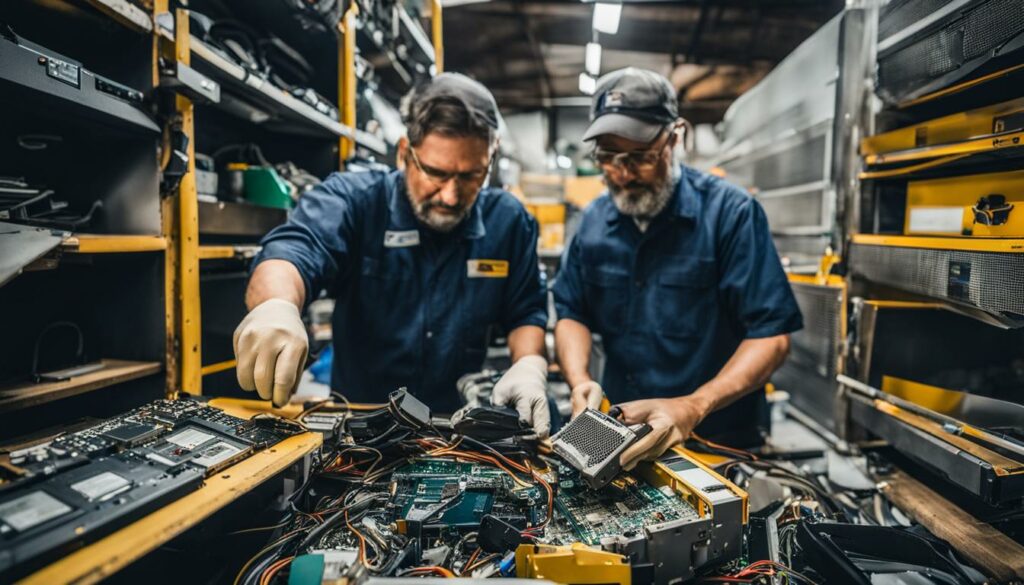
Conclusion
IT equipment reselling and recycling solutions offer a practical way for businesses to optimize value, minimize waste, and enhance their sustainability efforts. By maximizing the use of existing hardware, participating in trade-in programs, and selling or donating old equipment, businesses can save money and reduce their environmental impact. This not only benefits the bottom line but also aligns with the growing demand for responsible business practices.
Choosing a certified IT hardware recycler is crucial in ensuring data security and responsible disposal. By selecting recyclers certified by organizations like e-Stewards, R2v3 & RIOS, businesses can have confidence in the recycler’s adherence to best practices for data security and environmental responsibility. This certification provides peace of mind and validates the recycler’s credibility and ethical practices.
Considering the numerous benefits of reusing and recycling IT hardware, businesses can make informed decisions to maximize their IT equipment budget while making a positive contribution to the environment. By optimizing the value of existing assets, minimizing waste, and enhancing sustainability efforts, businesses can align their operations with the principles of a circular economy and set an example for others in their industry.
IT equipment reselling and recycling are not only cost-effective strategies but also important steps towards a more sustainable future. By embracing these practices, businesses can demonstrate their commitment to responsible resource management, reduce their carbon footprint, and contribute to the overall well-being of both their organization and the planet.
FAQ
What is IT equipment reselling?
IT equipment reselling is the process of selling used or refurbished IT hardware to other businesses or individuals who may have a need for it.
What is IT equipment recycling?
IT equipment recycling involves breaking down old or unused IT hardware to create new technology or materials, reducing waste and promoting environmental sustainability.
How can refurbishing old hardware help businesses save money?
Refurbishing old hardware through specialized companies can be a cost-effective solution as it allows businesses to extend the life of their existing equipment without the need for purchasing new devices.
What are trade-in programs for IT hardware?
Trade-in programs offered by manufacturers allow businesses to upgrade their hardware without exceeding their budget. Businesses can trade in their old equipment and receive credit towards the purchase of new devices.
How can selling or donating old IT equipment maximize its value?
Selling old equipment allows businesses to recoup some of their investment and potentially generate revenue. Donating old equipment to nonprofits can also help businesses contribute to their community and potentially receive tax benefits.
What are the benefits of reusing and recycling IT hardware?
Reusing and recycling IT hardware helps reduce disposal costs, extends the life of equipment, improves productivity, reduces a company’s carbon footprint, attracts environmentally conscious consumers, and can differentiate a business from competitors.
How does data security play a role in IT hardware recycling?
Proper data destruction ensures the security of sensitive information stored on old equipment. Choosing a certified IT hardware recycler guarantees that data is securely destroyed and eliminates the risk of data breaches.
What factors should be considered when choosing an IT hardware recycler?
It is essential to consider certification when choosing an IT hardware recycler. Reputable recyclers should be certified by organizations like e-Stewards, R2v3 & RIOS, ensuring they follow best practices for data security and environmental responsibility.

